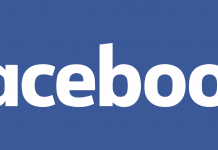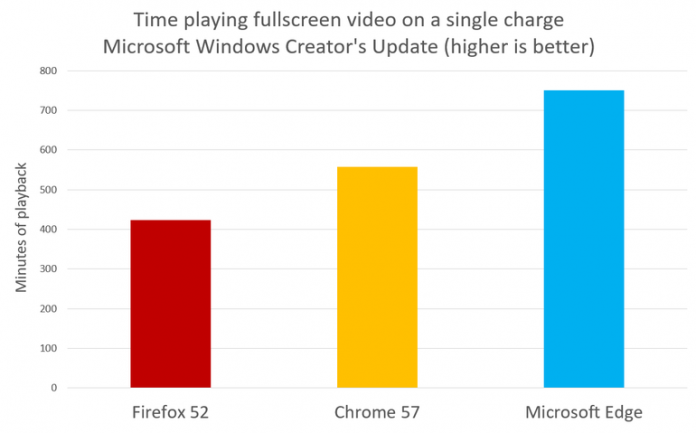Guess which wins Microsoft’s battery-life test?
Microsoft says a PC running its Edge browser will last 77 percent longer than Firefox, and 35 percent longer than Chrome.
To prove its point, Microsoft has once again employed a time-lapse video of three unplugged Surface Books side by side streaming video for several hours with Chrome, Edge, and Firefox.
The Surface running Edge lasts 12 hours and 31 minutes, while the Chrome device peters out after nine hours and 17 minutes, with the Firefox unit lasting seven hours and four minutes.
Microsoft released a similar video last June, again showing Edge outlasting its rivals, which prompted a reply from Google showing Chrome’s battery improvements.
To counter any claims of bias, Microsoft has published the methodology is followed for the test. The Surface Books featured an i5-6300U processor at 2.5GHz, with 8GB RAM, and an Intel HD Graphics 520 GPU.
The devices were running Windows 10 Pro Build 15063.0 or the Creators Update, with Edge 40, Chrome 57 64-bit, and Firefox 52 32-bit. These are the newest version of each browser.
Microsoft says it gave each device the same “realistic” user setup, but switched off some key tasks that could have interfered with the tests. The display was set to 75 percent brightness, and volume was muted, while location, Bluetooth, updates, and the ambient light sensor were disabled. Quiet hours was enabled, each device was connected to a wireless network, and Windows Defender was running. Windows Battery Saver mode was set to activate at 20 percent battery and the cache on each browser was cleared.
Microsoft attributes Edg+e’s battery performance to “encouraging HTML5 content over Flash, improving the efficiency of iframes, and optimizing hit testing”.
Besides improvements to energy efficiency, Edge in the Creators Update brings feature updates, as well improvements to responsiveness and performance.
In the Speedometer browser benchmark that Google used to show ‘real-world’ performance improvements in Chrome’s V8 JavaScript engine, Edge has seen its scores double over the past two years, according to Microsoft.
The new Edge also introduces a number of key technologies for the future of the web, including the WebVR to bring the web to VR headsets, Web Payments, WebRTC, Web Authentication, and Web Assembly.
















